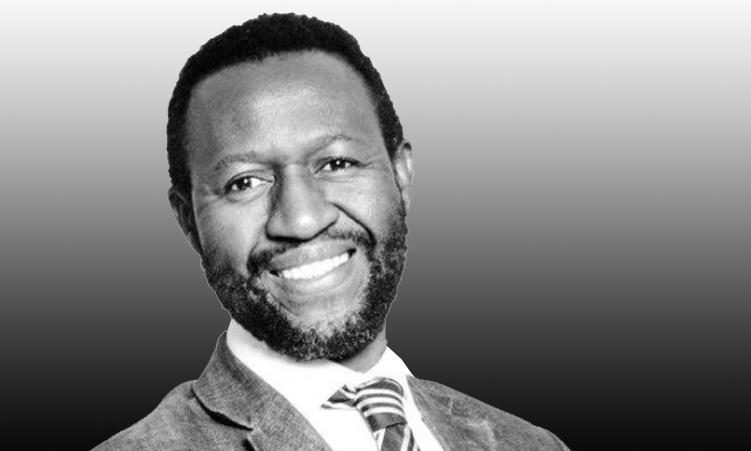The outcome of today’s (29 May) general elections in South Africa will depend on whether large numbers of voters can break the psychological barrier of trauma bond voting.
This particularly refers to voters who support the governing African National Congress based on a shared past, shared identity, and fear of the unknown.
In countries like South Africa with a contested past, where political parties are based on historical divisions, voters often loyally support their parties and leaders no matter their poor performance, incompetence or corruption.
Such voters fear the unknown – voting for parties they do not share colour, race, ideology, the past or ‘struggle’ credentials with – more than the abuse of their ‘own’ parties and leaders.
This phenomenon is akin to voting as if parties are football teams, such as Kaizer Chiefs, to be loyally supported even if they fail.
Yet others vote for parties and leaders on the basis that they and their leaders are “black”, come from the same village or community, share the same identity, or group-based or racial-solidarity voting.
SPINOFFS
No party in Africa, since Liberia became independent in 1847, has successfully delivered in government when its supporters loyally voted for it based on ethnicity, colour and language solidarity, or based on their struggle credentials against colonialism or apartheid.
If this continues, parties and leaders elected in this way will continue to be unaccountable, corrupt and incompetent.
State failure, joblessness, underdevelopment, and lawlessness will continue because these leaders and parties have no incentive to deliver good government as people will continue to vote for them no matter what.
Often trauma bond voters, when not voting for their failing liberation and independence parties and leaders, will not vote at all.
Alternatively, they will vote for spinoffs of their original parties; parties which share the same identity, religion, or struggle culture as the ‘mother’ party.
That is why both former ANC Youth League president Julius Malema and former ANC and South African president Jacob Zuma have been careful to position their spin-off parties as better versions of the ANC.
Malema uses ANC symbols such as ‘Economic Freedom Fighters’, a slogan that was part of the vernacular of supposedly ‘radical’ members of the ANC.
For his part, Zuma uses Umkhonto we Sizwe, the name of the ANC’s former military wing.
‘ENEMIES’
Yet, another aspect of trauma bond voting is that when voters finally overcome their toxic voting for parties and leaders with which they share ethnicity or oppression, they vote for parties and leaders who make violent threats against perceived “enemies” – other ethnic groups, non nationals, or big business.
They do so even if these leaders and parties are corrupt, incompetent or act against the victims’ interests.
This means many voters regularly vote against their own best interests –repeating cycles of voting for incompetence, corruption and for the continuation of poverty.
If this continues, the ANC and ‘black’ dominated governing parties will continue to be unaccountable, corrupt, and incompetent.
As a result, state failure, joblessness, underdevelopment, and lawlessness will continue because these leaders and parties will have no incentive when it comes to delivery.
Only if a substantial number of voters break the psychological barrier and vote for other parties – with which they do not necessarily share an identity, religion, or struggle affinity – will their favoured parties and leaders have the incentive to rule honestly and competently, and deliver on services.
Accountability, competence and transparency will only come from the ANC if its leaders face the real prospect of their supporters voting for someone else.
For public services to be delivered it is a prerequisite that people do not vote for parties and leaders as if they are football teams.
People should cast their vote rationally, based on whether a party will clean up government.
It is critical for people to vote against their own parties if they don’t deliver, and to vote for other parties they may not agree with in order to hold their ‘own’ party accountable and try and pressure them to deliver.
UNCERTAINTIES
This election may have the largest number of uncertain voters of any election in South Africa’s modern era as many black voters, deeply unhappy with the ANC, agonise over whether to finally cut the umbilical cord with the ANC.
It could be a country-path-changing decision to vote for an opposition party with which they don’t have historical, identity or ideological links, but which might deliver efficient public services, create jobs, and the prosperity they want.
Only if the ANC is relegated to the opposition benches will it be able to clean up its act.
Out of power, it can hold new governing parties accountable as an opposition force; in this way, South Africa could finally get accountable, public service delivery and honesty in government.
– William Gumede is associate professor, School of Governance, University of the Witwatersrand, and author of ‘Restless Nation: Making Sense of Troubled Times’
Stay informed with The Namibian – your source for credible journalism. Get in-depth reporting and opinions for
only N$85 a month. Invest in journalism, invest in democracy –
Subscribe Now!






